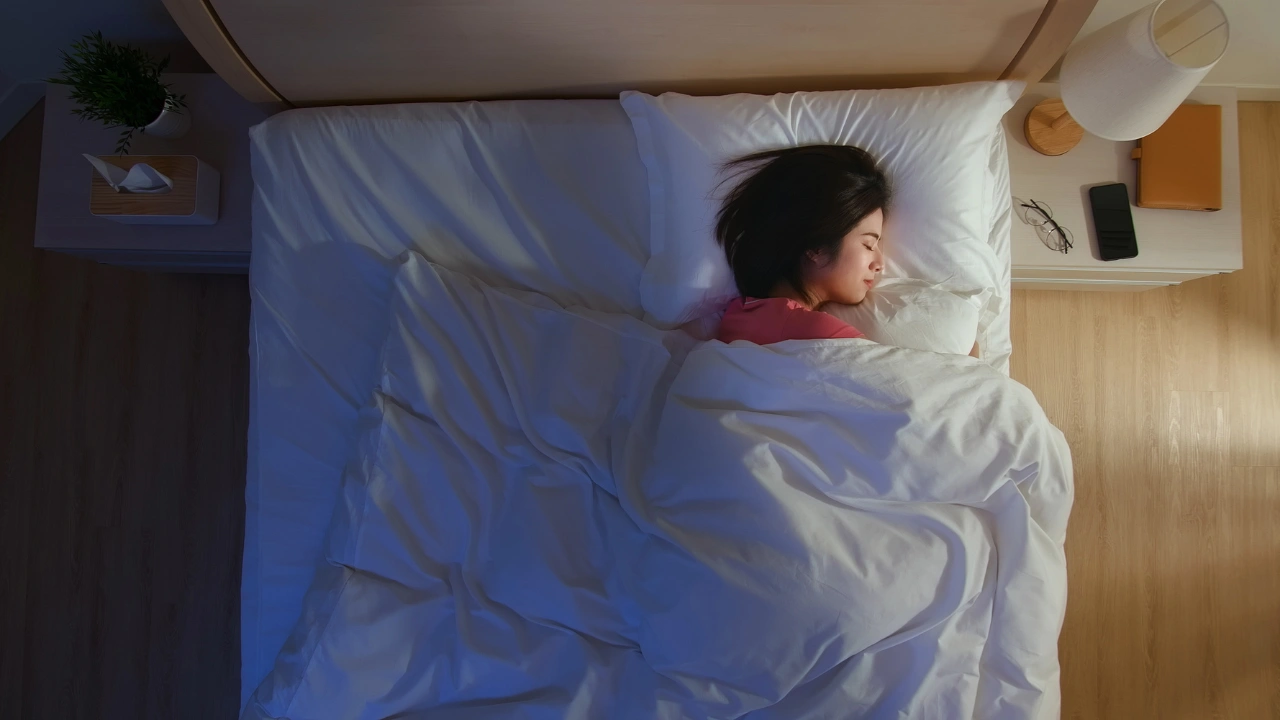Let’s be honest—getting a good night’s sleep can sometimes feel impossible. You crawl into bed, hoping for sweet dreams, but instead, you’re tossing, turning, and staring at the ceiling at 2 a.m. Sound familiar? If so, you’re not alone.
The good news? Better sleep is totally possible! With a few simple changes to your routine, you can wake up feeling refreshed and ready to take on the day. Here’s how to make it happen:
1. Stick to a Sleep Schedule
Your body loves consistency. Try to go to bed and wake up at the same time every day—even on weekends. It might be tempting to sleep in, but keeping a regular schedule helps regulate your body’s internal clock, making it easier to fall asleep and wake up naturally.
Over time, this habit will reinforce a steady sleep-wake cycle, leading to improved sleep quality.
2. Create a Relaxing Bedtime Routine
Your brain needs a signal that it’s time to wind down. Try calming activities like reading, taking a warm bath, or practicing deep breathing. The goal is to tell your body, “Hey, it’s time for sleep!”
Avoid stimulating activities like intense workouts, watching action-packed movies, or engaging in deep conversations that might keep your mind active. Consistency is key—doing the same activities each night will train your body to recognize when it’s time to rest.
3. Limit Screen Time Before Bed
Phones, tablets, and TVs emit blue light, which messes with your sleep hormone (melatonin). Aim to put your devices away at least 30–60 minutes before bed. Instead, pick up a book, journal, or just relax in dim lighting.
If you must use screens, consider using blue light filters or switching your devices to “night mode” to reduce the impact. Reducing screen exposure before bed helps your brain transition into a more relaxed state, making it easier to drift off to sleep.
4. Make Your Bedroom a Sleep Haven
Think of your bedroom as a cozy retreat. Keep it cool (between 60–67°F or 16–19°C), dark, and quiet. Invest in comfy pillows, a supportive mattress, and soft, breathable sheets. Blackout curtains can help block out streetlights, and white noise machines or earplugs can minimize disturbances from outside noises.
The more comfortable and inviting your bedroom feels, the easier it will be to relax and fall asleep.
5. Watch What You Eat and Drink
Caffeine and alcohol can disrupt sleep more than you think. Try to avoid caffeine in the afternoon, as it can stay in your system for hours and make it harder to fall asleep. Alcohol might make you feel drowsy, but it can actually disrupt your sleep cycle, leading to more frequent awakenings.
Also, heavy meals too close to bedtime can lead to discomfort and restlessness. Opt for a light snack if you’re hungry before bed, such as a banana or a handful of almonds, which contain natural sleep-promoting nutrients.
6. Get Moving During the Day
Regular exercise can do wonders for your sleep! Physical activity helps reduce stress, regulate hormones, and improve overall sleep quality.
However, try to finish workouts at least a few hours before bedtime so your body has time to cool down. Engaging in at least 30 minutes of moderate exercise during the day—whether it’s a brisk walk, yoga, or strength training—can help you fall asleep faster and enjoy deeper sleep.
7. Manage Stress and Anxiety
A racing mind is the enemy of good sleep. Journaling, meditating, or practicing mindfulness can help clear your thoughts before bed. If stress is a constant struggle, consider talking to someone who can help such as a therapist or counselor.
Deep breathing exercises, progressive muscle relaxation, and guided meditation can also be powerful tools to calm the mind and prepare for restful sleep.
8. Take Naps Wisely
Naps can be great, but long or late-afternoon naps can mess with nighttime sleep. If you need a nap, try to keep it short (20–30 minutes) and earlier in the day.
Long naps can make it harder to fall asleep at night, while short power naps can help boost alertness and energy without interfering with your sleep schedule.
9. Try Natural Sleep Aids (If Needed)
If sleep is still a struggle, you can explore natural sleep aids like herbal teas (chamomile, valerian root) or melatonin supplements. Lavender essential oil or magnesium supplements may also promote relaxation.
However, always consult a healthcare professional before trying any supplements, as they may not be suitable for everyone. Establishing good sleep habits should be the first step before turning to sleep aids.
10. Listen to Your Body
If you’re lying awake in bed for more than 20 minutes, don’t just stare at the clock. Get up, do something relaxing (like reading under soft light), and try again when you feel drowsy.
Forcing yourself to sleep can create anxiety around bedtime, making it even harder to rest. Pay attention to your body’s natural sleep signals, and don’t be afraid to adjust your routine as needed.
Conclusion
Improving your sleep doesn’t have to be overwhelming. Small changes can lead to big improvements, and the better you sleep, the better you’ll feel overall. So, which tip are you going to try first? Sweet dreams!






